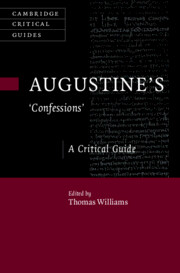Refine search
Actions for selected content:
919 results
3 - The Violence of Komape
- from Part I - Alter-Native Constitutionalism
-
- Book:
- Alter-Native Constitutionalism
- Published online:
- 09 January 2026
- Print publication:
- 19 February 2026, pp 92-120
-
- Chapter
- Export citation
2 - Concepts in Epicurean and Stoic Philosophy
-
-
- Book:
- A Philosophical History of the Concept
- Published online:
- 30 January 2026
- Print publication:
- 19 February 2026, pp 45-74
-
- Chapter
- Export citation
Content of image described in text. Constitutional Court of South Africa
- from Part IV - Coda: Property Alter-Natives
-
- Book:
- Alter-Native Constitutionalism
- Published online:
- 09 January 2026
- Print publication:
- 19 February 2026, pp 329-378
-
- Chapter
- Export citation
Seventh Collection
- from Letters for the Advancement of Humanity
-
- Book:
- Johann Gottfried Herder: Letters for the Advancement of Humanity
- Published online:
- 13 December 2025
- Print publication:
- 22 January 2026, pp 325-376
-
- Chapter
- Export citation
4 - The Declaration as Political Rhetoric
-
-
- Book:
- The Cambridge Companion to the Declaration of Independence
- Published online:
- 18 December 2025
- Print publication:
- 22 January 2026, pp 46-60
-
- Chapter
- Export citation
Languages and Linkages: Explaining Diaspora Attitudes Toward the Ancestral Homeland
-
- Journal:
- Journal of Race, Ethnicity and Politics , First View
- Published online by Cambridge University Press:
- 15 January 2026, pp. 1-27
-
- Article
-
- You have access
- Open access
- HTML
- Export citation

A Chinese Discourse of Heritage
-
- Published online:
- 14 January 2026
- Print publication:
- 12 February 2026
-
- Element
- Export citation
4 - The Inaugurators of Scholasticism: Language and Theology in the Twelfth Century
- from Part I - Historical Context
-
-
- Book:
- The Origins of Scholasticism
- Published online:
- 18 November 2025
- Print publication:
- 08 January 2026, pp 116-154
-
- Chapter
- Export citation
1 - Different Hands
- from Part I - Relationships
-
- Book:
- The Epistles of John
- Published online:
- 17 December 2025
- Print publication:
- 08 January 2026, pp 15-33
-
- Chapter
- Export citation
2 - Literary Dependence
- from Part I - Relationships
-
- Book:
- The Epistles of John
- Published online:
- 17 December 2025
- Print publication:
- 08 January 2026, pp 34-75
-
- Chapter
- Export citation
International Relations in France: A View from Across the Channel
-
- Journal:
- European Political Science / Volume 4 / Issue 2 / June 2005
- Published online by Cambridge University Press:
- 01 January 2026, pp. 164-174
-
- Article
- Export citation
Should Political Science be More Relevant? A Comment on the Paper by John E. Trent
-
- Journal:
- European Political Science / Volume 10 / Issue 2 / June 2011
- Published online by Cambridge University Press:
- 01 January 2026, pp. 226-234
-
- Article
- Export citation
Under-represented, cautious, and modest: the gender gap at European Union Politics
-
- Journal:
- European Political Science / Volume 21 / Issue 3 / September 2022
- Published online by Cambridge University Press:
- 01 January 2026, pp. 462-475
-
- Article
-
- You have access
- Open access
- HTML
- Export citation
The Case for English
-
- Journal:
- European Political Science / Volume 17 / Issue 3 / September 2018
- Published online by Cambridge University Press:
- 01 January 2026, pp. 358-365
-
- Article
- Export citation
The Language of Political Science: Should it be English?
-
- Journal:
- European Political Science / Volume 17 / Issue 3 / September 2018
- Published online by Cambridge University Press:
- 01 January 2026, pp. 337-339
-
- Article
- Export citation
In Defense of a Multilingual Political Science
-
- Journal:
- European Political Science / Volume 17 / Issue 3 / September 2018
- Published online by Cambridge University Press:
- 01 January 2026, pp. 340-348
-
- Article
- Export citation
Navigating Place, Language and Culture in Canadian Education: Stories of Entangled Identities
-
- Journal:
- Australian Journal of Environmental Education , First View
- Published online by Cambridge University Press:
- 22 December 2025, pp. 1-13
-
- Article
-
- You have access
- Open access
- HTML
- Export citation
Chapter 6 - Sensing Suffering
-
- Book:
- Law and Torture
- Published online:
- 17 December 2025
- Print publication:
- 18 December 2025, pp 161-202
-
- Chapter
- Export citation

Augustine's ‘Confessions'
- A Critical Guide
-
- Published online:
- 16 December 2025
- Print publication:
- 22 January 2026
